In commemoration of the 2024 International Day of Maternal Health and Rights, the 4th Maternal Health Summit was hosted by Safer Hands Health Initiative (SHI), on the 25th of April 2024, at the FBMS Hall, Lagos State University Teaching Hospital (LASUTH).
At this year’s summit, in line with its goal and objectives, well over 100 participants – including medical practitioners, healthcare professionals in public and private sectors, medical students, traditional birth attendants, community care providers, religious leaders, governmental and non-governmental organisations (NGOs) – came together to share knowledge and discuss ways forward on the theme “Current State of Maternal Health in Nigeria: Socio-Economic Determinants and Implications”.
“…Women have the right to take decisions concerning their bodies…” ~ Prof. Bosede Afolabi, Theme Keynote Speaker, 4th SHI Maternal Health Summit.
Each subtheme of the summit was tackled as either a panel session or with series of abstract/product presentation. During the first panel session titled “The Role of Healthcare Professionals in Diaspora in Improving Maternal Health in Nigeria” and moderated by Dr Opeyemi Oladunjoye. One of the panellists from the diaspora, Dr. Joy O’Hazy OAM (Deputy Chair, Board Member, Birthing Kits Foundation Australia (BKFA)) highlighted ways in which BKFA contributes towards curbing maternal mortality in Nigeria and other African nations. This they do by providing NGOs with free clean birthing kits to ensure safe and hygiene delivery, regardless of the locality or birthing attendants. She also called for more partnership with local NGOs to improve the reach and services of medical professionals – concentrated in urban areas – to rural, hard-to-reach and underserved places, where they have no formal means of controlling their maternal morbidity or mortality rates.
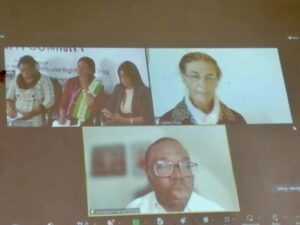
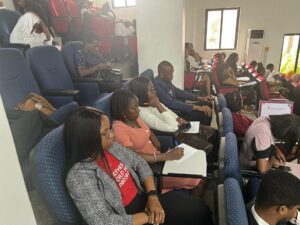
The second subtheme on “Synergy for Local Production and Importation for Maternal Health Medicines and Supplies” had Pharm Justine Aisagbonhi (Assistant Director, Drug Registration & Regulatory Affairs, NAFDAC) as one of the panellists, representing the Director General of NAFDAC, Nigeria. During this panel session which followed a presentation by Pharm Valentina Marinze (National Manager, EthyPharm Nigeria), where she had highlighted some of the challenges facing Importation of essential maternal and neonatal health products into the country. While Pharm Justine pointed out the roles of different stakeholders and governmental agencies in providing solutions to those identified challenges.
At EthyPharm, life matters more to us and putting patients first. This we achieve by serving communities with essential medicine and ensuring safe and effective medication circulation in the country. However, there are so many bottle necks hindering this goal, including low demand for quality due to cost, inadequate supply, infiltration of counterfeits, high tax rates and import duties, long and multiple timelines on importation and clearing permits, and many more. These also affect maternal medicines, causing low importation of these essential products and also low circulation within the country. We hereby plead with policy makers, to make favourable policies and prioritize maternal and neonatal medicines and health care products to enable us achieve our SDG goals. ~ Pharm Valentina Marinze, Presenter, 4th SHI Maternal Health Summit.
Emphasising on the crucial factors for availability and affordability of these essential drugs and health products, pharm Justine stated that, “… just like in other parts of the world, currently in Nigeria, we have more importation than local production of most drugs and medical products. However, our own homegrown products are essential for securing availability, ensuring accessibility and, on the long run affordability…“.
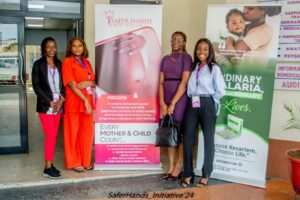
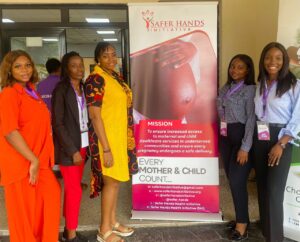
She further enlightened that, “…to attain the balance between local production and importation – which is important for our national development as well – one of the existing policies at NAFDAC geared towards this is the policy through which the capacity of our local pharmaceutical industries have been assessed and some have been found to be capable of producing some of these imported essential drugs inhouse. Hence, these certain products have been mandated for production inhouse. We already have a list on ground (essential maternal and neonatal medicines included) that have been agreed upon and approved for home grown production. Meaning over a period of time, companies importing those items will no longer be able to renew their licence for importation but would have to produce them locally. Also, we have upskilled within the agency. For instance, to attain a seamless registration process, most manual processes have become fully automated and electronic. Although this change has posed some challenges as well, but we are constantly finetuning the process to make people adapt better”.
At the agency (NAFDAC), we are committed and strive to achieve a balance between our local production and importation. However, our pharmaceutical industry in Nigeria is still coming up, but some essential medicine must still be imported, so we have a celling list of compulsory importation, as well a list of those proposed for local production. ~ Pharm Justine Aisagbonhi, Panellist, 4th SHI Maternal Health Summit.
Conclusively, she urged key stakeholders to come together and make this work, by collating researches, sharing stories and experiences, mapping out common and individualized challenges – which is mostly beyond singular individuals or organisations – and outlining how to go about advocating strongly for immediate governmental intervention. As these issues are multifactorial – not just a single agency or NAFDAC thing – and a lot of backup and action from the government is needed.
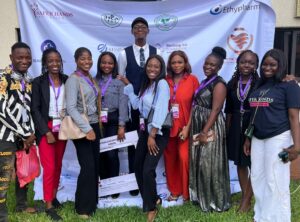
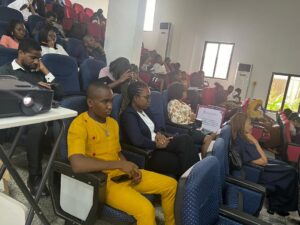
Likewise expanding on stated facts and advice, Dr Toni Adeyemi (Senior Special Assistant to the Lagos State Governor on Health) during the third panel discussion titled “Harnessing political involvement, public-private partnership and investment in improving maternal healthcare”, reiterated that the need for data driven policy briefs, that explains and have the capacity to get the attention of the government towards understanding the cost of maternal mortality and the urgent need to invest in it. As well as partner with private sectors towards improving maternal health across the nation. Also, Mrs Areo Rafiat (Community Health Practitioner, Lagos State Primary Health Care Board, LSPHCB) on the panel emphasised that “regardless of the presence of policies, the political will for implementation needs to be worked on, and new policies that captures current realities are needed to foster public-private partnerships”.
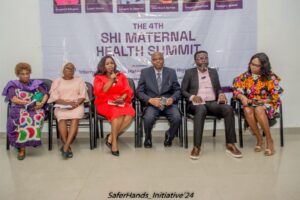
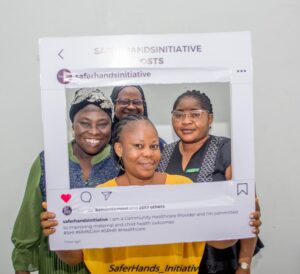
Editor’s note:
This report was collated by Chinonso Ofoegbu (Program Officer, SHI) and Oluwakemisola Agoyi Awoniyi (SHI Program Manager and Convener, SHI Maternal Health Summit). Also, important links to documents and recordings from the summit include:
https://bit.ly/
https://youtu.be/
https://youtu.be/
https://drive.google.com/
https://drive.google.com/
– SHI video on Traditional Birth Attendants in Nigeria: https://www.youtube.com/watch?
– MCHP presentation video on maternal and child outreach: https://drive.google.com/file/
– ETHYPHARM Advertorial video: https://drive.google.com/file/
– MRH Collective Video for awareness about Maternal Mortality in Nigeria: https://www.youtube.com/

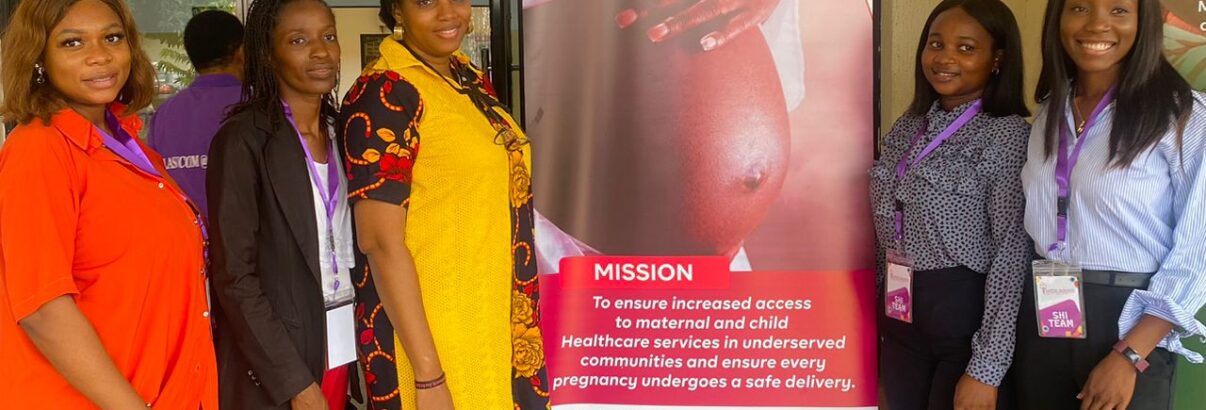
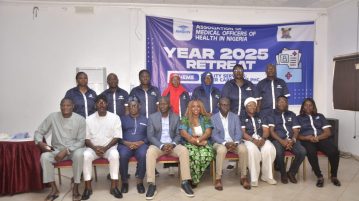
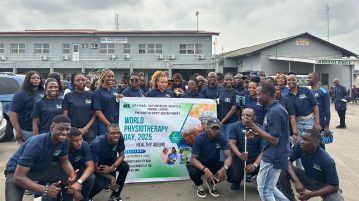
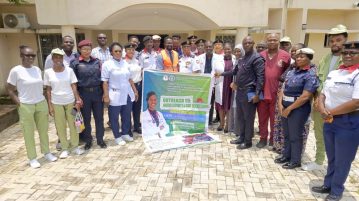
Discussion1 Comment
Good attempt ..Next time let there be a spread in the topic to ensure most immediate needs in maternal healthcare management .